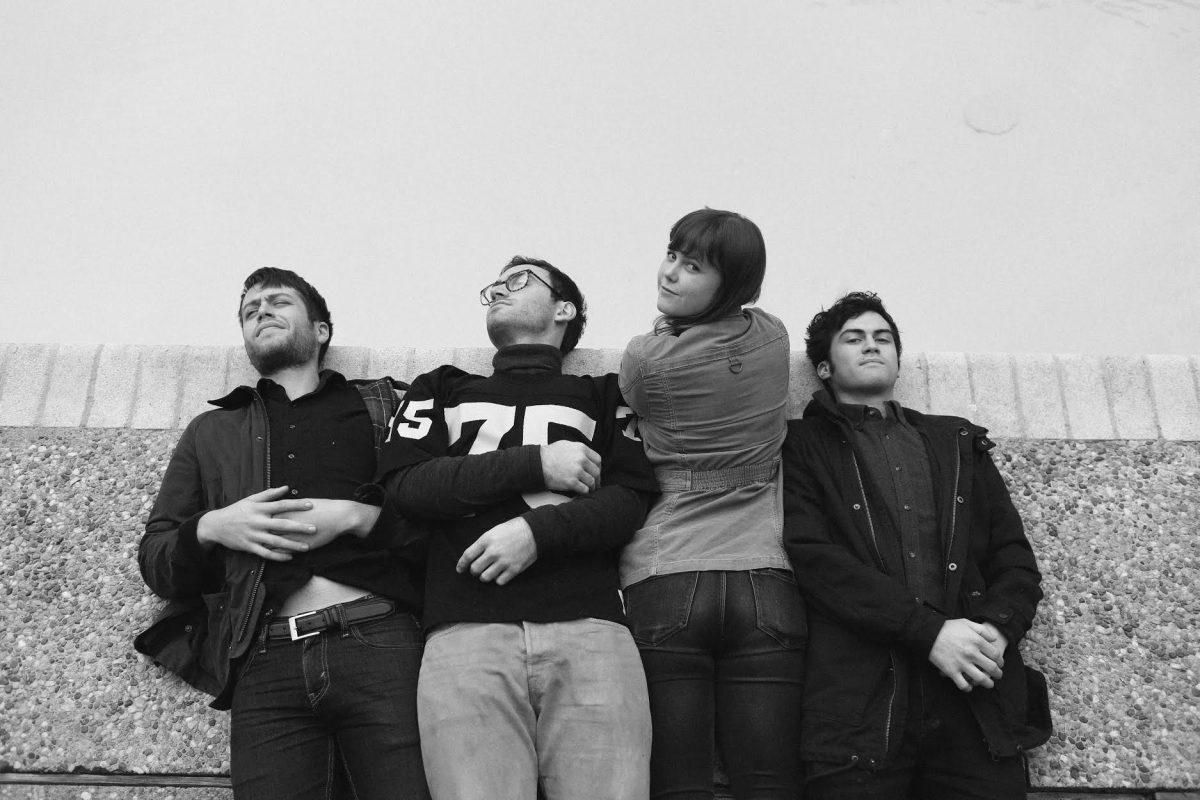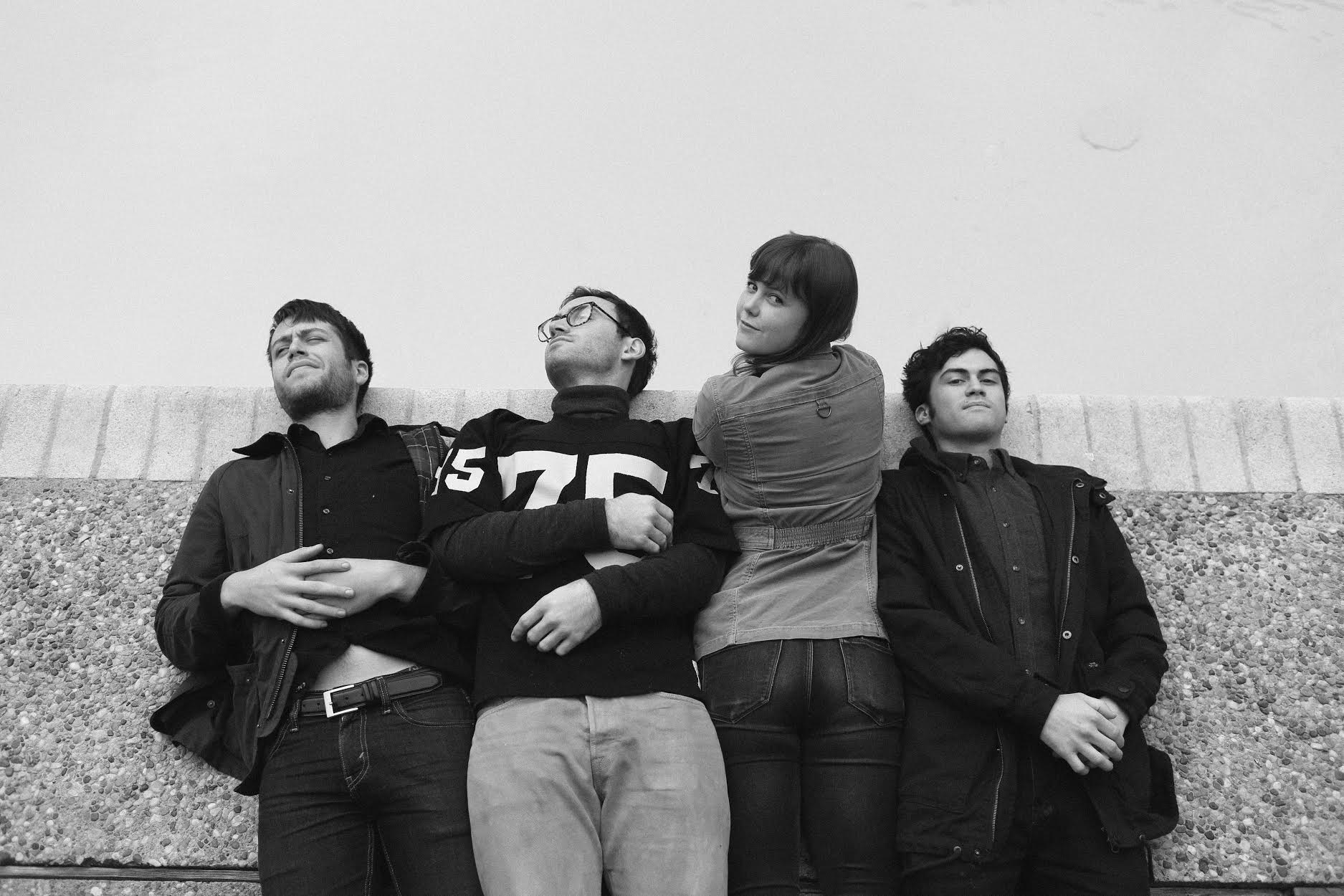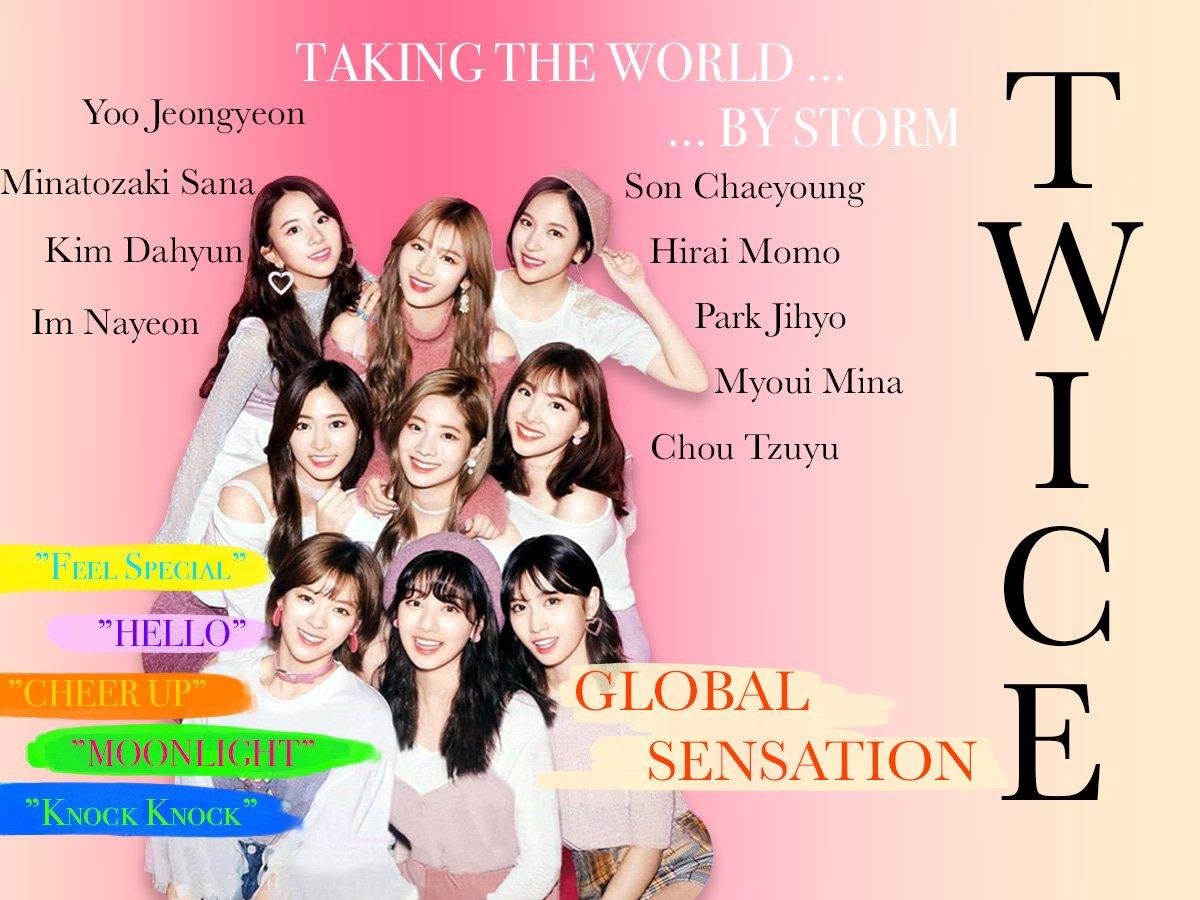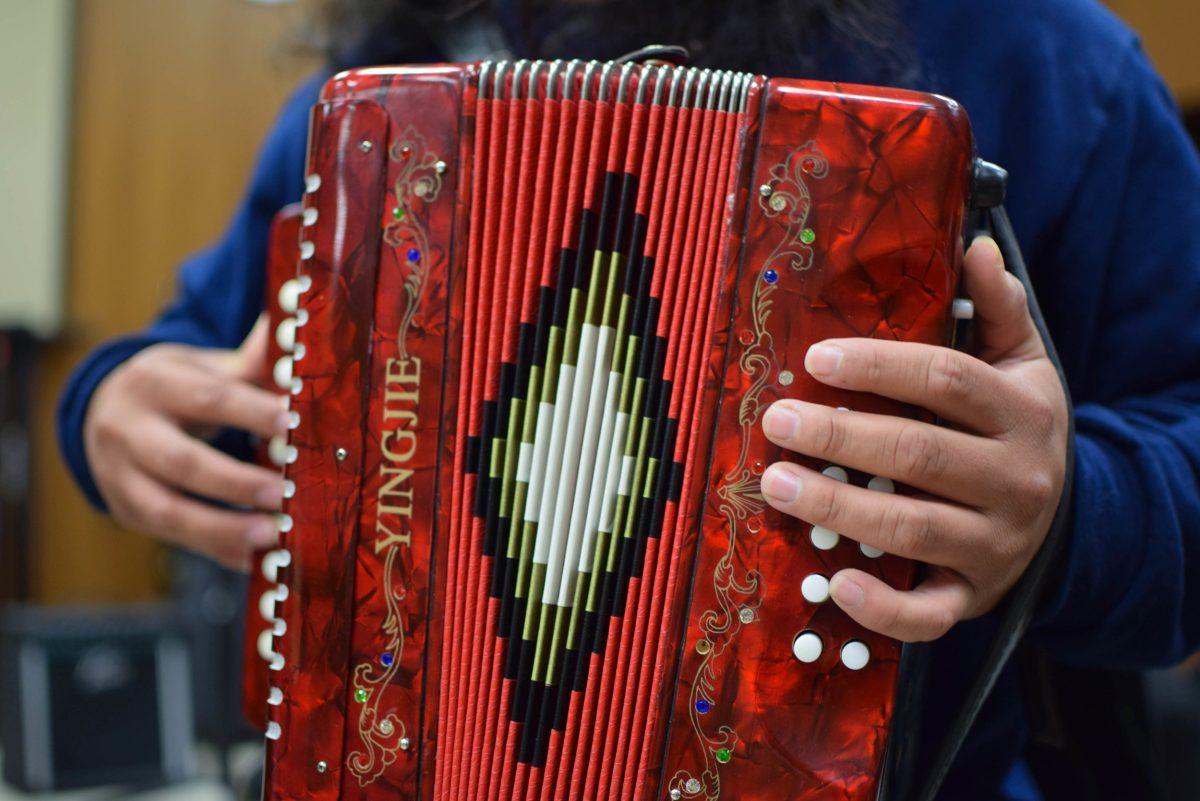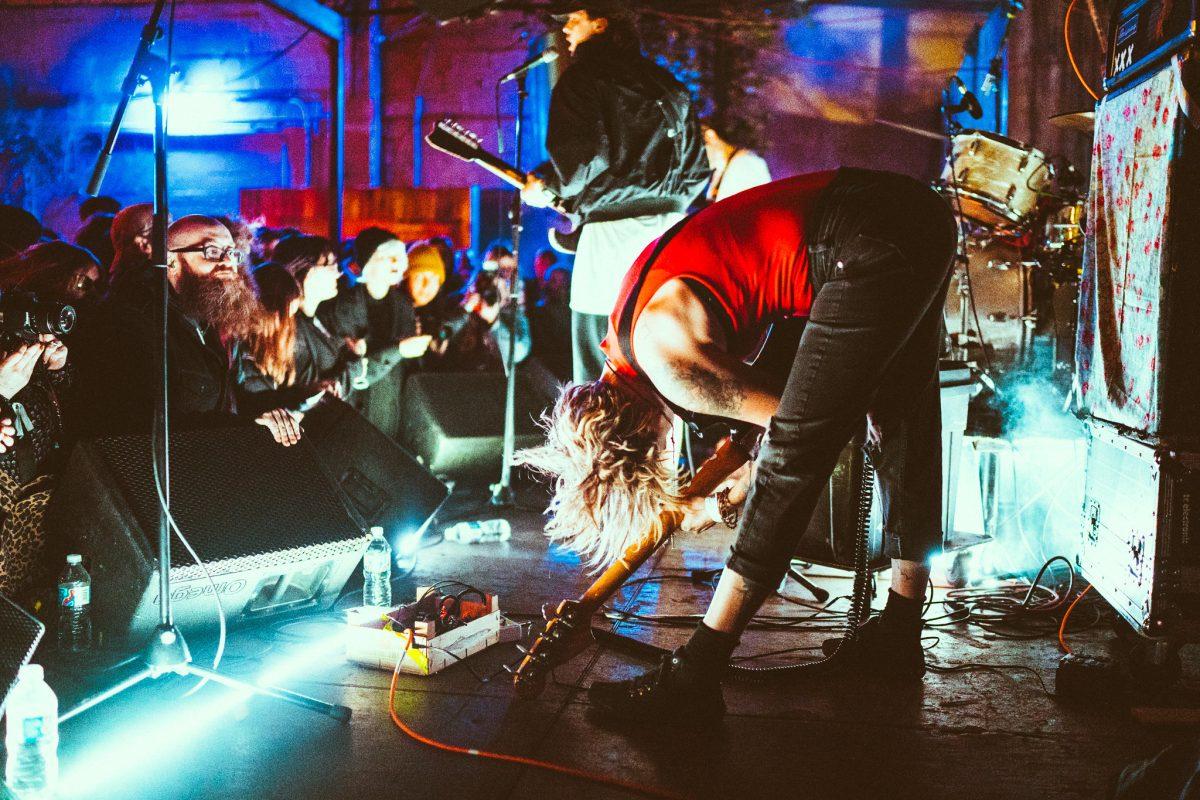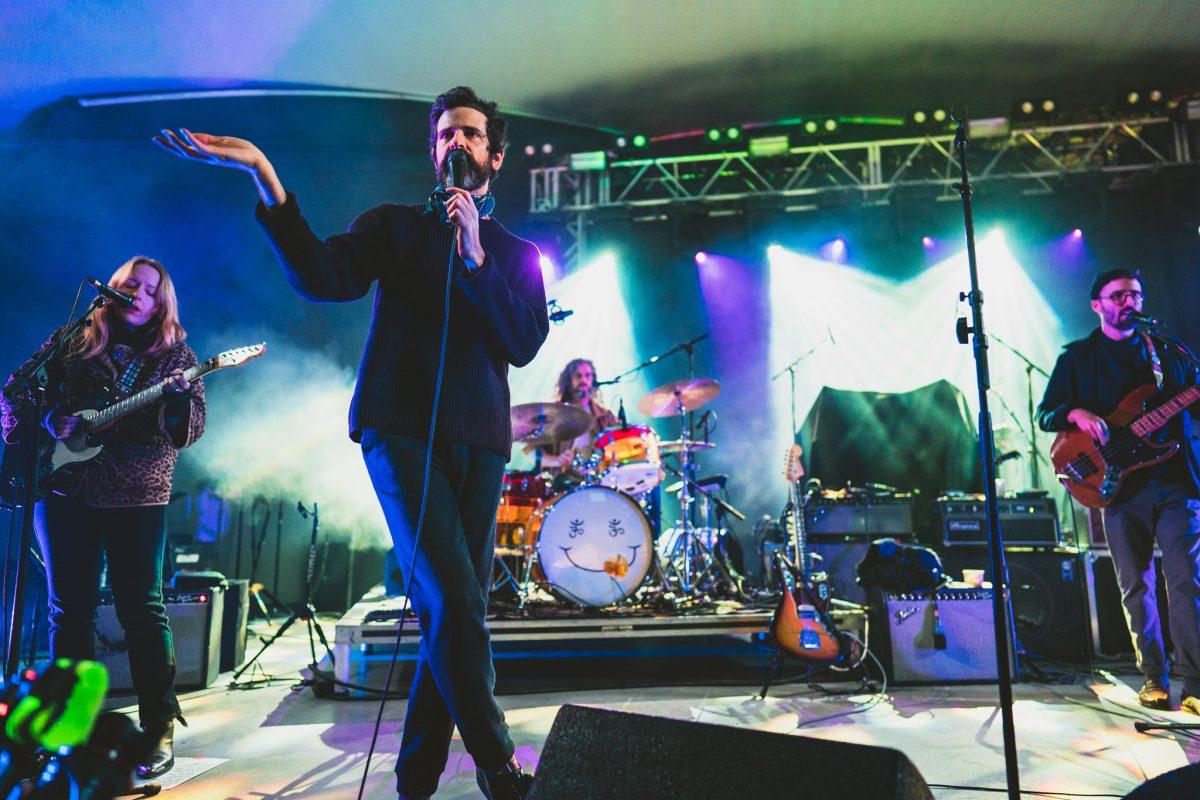“I’m usually not like that in real life. I don’t really think anyone is like that in real life,” Chris Nordahl of US Weekly says of his incendiary performance persona. Since their 2015 formation, the band’s galvanizing stage presence and genre-bending sound have propelled them to the top of Austin’s live music scene. From opening for fellow Texas group Parquet Courts in August to performing at Austin’s newest, upcoming festival, Sound on Sound, this band is one to keep an eye on.
Story by Elise Barbin
Photos by Will Taylor
ORANGE spoke to the band’s vocalist Chris Nordahl, bassist Ryan Curtis and drummer Kent Hale to talk about their namesake, songwriting process and musical inspirations. The group also includes guitar player Ryan Fitzgibbon. US Weekly will perform at Sound on Sound Festival on Saturday, Nov. 5 at the Keep Stage.
Can you tell me about your band name?
Nordahl: I wish there was a better story behind it, but we were starting the band and I saw the magazine US Weekly on the rack at the grocery store and just thought it would be a good name. So, I suggested it at our first practice, everybody laughed and that was it. That’s our band name.
What was forming the band like?
Nordahl: We all knew each other from playing in other bands. I heard that Kent wanted to start up a heavier project, and I had some beginnings of songs at the time, so we sort of coalesced. We knew our other guitarist Ryan [Fitzgibbon] wanted to be in something heavier, and then Ryan [Curtis] told me after I had played a show one night that he wanted to play bass in a band. I just asked if he wanted to play in this band, and he said yes.
Your sound has been described as “avant-garde.” Do you agree with that?
Nordahl: I think we try to pull ideas from places that aren’t necessarily the most immediate thing. We’ve been trying to break out of verse-chorus song structure a little bit more and experimenting with song lengths.
Curtis: Some of it’s avant-garde in the sense that the music itself kind of has a humorous edge to it. It doesn’t take itself too seriously. Even in the guitar parts and stuff, it’s funny sounding at times.
Hale: It think avant-garde connotes that we take it very, very seriously, but the music itself is not like that.
Nordahl: I think we take funny stuff seriously.
Are you guys recording right now?
Nordahl: Yeah, it’s an LP. We’re gonna have 11 songs, maybe more by the end of it. That’s coming out on Night Moves Records. We’re probably mid-way through the whole recording process… I think it’s gonna be released on vinyl, if everything goes well. Right now, we’re shooting for it to come out in the spring, either before or after SXSW.
Do you have any specific inspiration for this album?
Nordahl: I’ve been listening to a lot of prog-rock lately like Yes and The Talking Heads, even though they’re not really prog-rock. But, we don’t ever sit down and say, “We wanna make a song that sounds like this.”
Curtis: We definitely share bands with each other, but we don’t ever say “Let’s try to make a Yes song.”
Nordahl: We’ll G-chat YouTube links back and forth to each other. Ryan turned me onto a Turkish band called Asia Minor.
Curtis: We like CAN a lot. A newer band we like is Raspberry Bulbs.
What’s the songwriting process like?
Curtis: Someone will go take a break at practice, and two or three people will start jamming on a thing, and the other person will come back and join in. I feel like that happens more often than all four of us trying to do something all at once. We’ve tried a couple of times dedicating a few hours to writing a song, but it never works like that. We practice for shows and then get distracted and end up writing a song.
Hale: If we try to be focused and say, “We wanna write a song,” it just doesn’t work out.
Do you approach writing and playing live differently?
Nordahl: Not at all, really. There are maybe a few things on this album we don’t want to recreate live. Like, we have our longest song we’ve ever written on this album, and half of it is just noise essentially, so we wouldn’t want to play that live, but it’s something cool to hear on the record. Mostly, we just try to record as faithfully to what you would hear at the live show, with a few overdubs and little things for texture.
Curtis: Chances are, we’ll record this stuff and play it slightly different live. Switch up the structure or something, so you get a slightly different experience on the recording and the live experience.
Your energy now is very different from your energy on stage. Where does that come from?
Curtis: I think it’s a response to the bands we were in before. The other bands we would play with didn’t give a shit. Not that they don’t care about the music, but the live shows were pretty apathetic, so we wanted to do something different. It’s also weird to play this music and not move around.
Nordahl: Some of the things I have to push out of myself involve weird physical motions. It is somewhat intentional also because I think the music elicits some sort of reaction, at least from the players. I’ve never really had the opportunity to dance on a stage in front of people.
Curtis: We also want to set the tone for the audience— that you don’t have to start a mosh-pit or you don’t have to stand still. You can just move around to it how you like.































